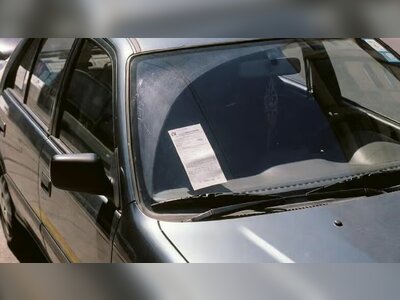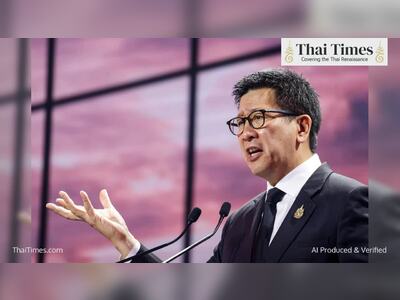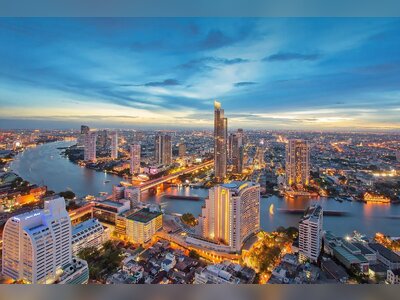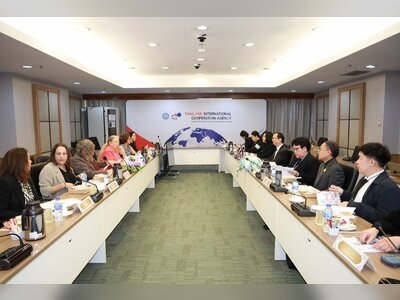Thailand steps up attack on plastic waste
In 2018, the government, led by Prime Minister Prayut Chan-o-cha, began a campaign to phase out single-use plastic bags, urging retailers to stop giving them away from January 1, 2020.
However, the pandemic in 2020 forced the country into lockdown, increasing the reliance on home deliveries and consequently the use of plastic packaging.
This shift led to a 62% rise in plastic waste, from 2.12 million tonnes in 2019 to 3.4 million tonnes in 2020, as reported by the Thailand Environment Institute.
Persistent efforts from both public and private sectors are expected to enhance waste management practices, including recycling and reducing plastic usage.
The issue is urgent as plastic waste continues to grow, with the Pollution Control Department noting a rise to 25.7 million tonnes in 2022, and roughly 28% of this waste being mishandled.
Thailand was ranked as having the 10th highest quantity of ocean plastic waste in 2020.
A cross-sector Alliance to End Plastic Waste was formed, which created a Smart Recycling Hub targeting to recycle 50,000 tonnes of plastic annually.
Key participants include the Thailand Institute of Scientific and Technological Research (TISTR) and several private companies.
Projects to improve solid waste management are underway, including pilot waste segregation initiatives by TISTR in Saraburi and Rayong.
Similarly, Bangkok is promoting waste sorting among city residents to mitigate environmental impact and cut costs.
On the consumer front, campaigns have been launched by the Pollution Control Department, with over 90 companies joining efforts to reduce plastic bag usage, achieving a cutback of 14.3 billion bags.
A follow-up scheme (2023-2027) aims to lessen plastic food containers and promote eco-friendly substitutes.
An ambitious target has been set for a 100% recycling rate of used plastics and a 50% cut in marine plastic litter.
In parallel, businesses are exploring eco-innovations, such as SCG Packaging Plc's venture into transforming eucalyptus into bioplastics, and Biodegradable Packaging for Environment Co's production of compostable food containers from agricultural waste.
Overall, Thailand’s multifaceted strategy seeks to minimize the environmental footprint of plastics through targeted reductions, enhanced recycling, and innovative alternatives.
However, the pandemic in 2020 forced the country into lockdown, increasing the reliance on home deliveries and consequently the use of plastic packaging.
This shift led to a 62% rise in plastic waste, from 2.12 million tonnes in 2019 to 3.4 million tonnes in 2020, as reported by the Thailand Environment Institute.
Persistent efforts from both public and private sectors are expected to enhance waste management practices, including recycling and reducing plastic usage.
The issue is urgent as plastic waste continues to grow, with the Pollution Control Department noting a rise to 25.7 million tonnes in 2022, and roughly 28% of this waste being mishandled.
Thailand was ranked as having the 10th highest quantity of ocean plastic waste in 2020.
A cross-sector Alliance to End Plastic Waste was formed, which created a Smart Recycling Hub targeting to recycle 50,000 tonnes of plastic annually.
Key participants include the Thailand Institute of Scientific and Technological Research (TISTR) and several private companies.
Projects to improve solid waste management are underway, including pilot waste segregation initiatives by TISTR in Saraburi and Rayong.
Similarly, Bangkok is promoting waste sorting among city residents to mitigate environmental impact and cut costs.
On the consumer front, campaigns have been launched by the Pollution Control Department, with over 90 companies joining efforts to reduce plastic bag usage, achieving a cutback of 14.3 billion bags.
A follow-up scheme (2023-2027) aims to lessen plastic food containers and promote eco-friendly substitutes.
An ambitious target has been set for a 100% recycling rate of used plastics and a 50% cut in marine plastic litter.
In parallel, businesses are exploring eco-innovations, such as SCG Packaging Plc's venture into transforming eucalyptus into bioplastics, and Biodegradable Packaging for Environment Co's production of compostable food containers from agricultural waste.
Overall, Thailand’s multifaceted strategy seeks to minimize the environmental footprint of plastics through targeted reductions, enhanced recycling, and innovative alternatives.











